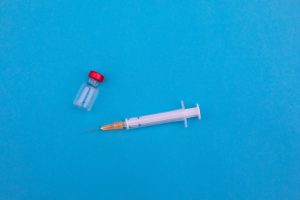
Oral sex creating super-gonorrhoea
pharmafile | July 7, 2017 | News story | Research and Development | antibiotic resistance, gonorrhoea
The WHO has announced that data from across 77 different countries show that the sexually-transmitted infection (STI) gonorrhoea is becoming increasingly antibiotic-resistant. In particular, transmission through oral sex and the subsequent use of antibiotics for sore throats is leading to the infection to rapidly become resistant to all forms of antibiotic treatment.
For the STI to become entirely resistant to all antibiotics is particularly serious, as there are currently only three potential new treatments being developed.
The data showed that gonorrhoea strains that were resistant to current last-resort treatment, oral cefixime or injectable ceftriaxone, were found in 66% of the countries monitored. While first-line treatment, ciprofloxacin, was found to have widespread resistance, with 97% of countries found that have drug-resistant strains.
“The bacteria that cause gonorrhoea are particularly smart. Every time we use a new class of antibiotics to treat the infection, the bacteria evolve to resist them,” said Dr Teodora Wi, Medical Officer, Human Reproduction, at WHO. “These cases may just be the tip of the iceberg, since systems to diagnose and report untreatable infections are lacking in lower-income countries where gonorrhoea is actually more common”.
Currently, 78 million are infected with the STI every year, worldwide. The rates of gonorrhoea are now increasing, as antibiotic resistance kicks in and the use of condoms steadily falls. It affects the genitals, rectum and throat.
The issue to be had with combatting the infection is that the industry that usually leads the fight against ailments, the pharmaceutical industry, has little interest in developing antibiotics.
The reason for this is relatively simple, they are expensive and difficult to develop and, through use, they become rapidly ineffective. Treatment regimens with antibiotics are also relatively short so there is little money to be made once a successful antibiotic has been found.
“To control gonorrhoea, we need new tools and systems for better prevention, treatment, earlier diagnosis, and more complete tracking and reporting of new infections, antibiotic use, resistance and treatment failures,” said Dr Marc Sprenger, Director of Antimicrobial Resistance at WHO. “Specifically, we need new antibiotics, as well as rapid, accurate, point-of-care diagnostic tests – ideally, ones that can predict which antibiotics will work on that particular infection – and longer term, a vaccine to prevent gonorrhoea.”
Sprenger mentions the activities that health authorities can control, in prevention and earlier diagnosis but much is reliant on his reference to new antibiotics. There are certain organisations, such as the Global Antibiotic Research and Development Partnership, which is working for new antibiotics without the driver to make profit.
However, it will always be a slow process and there is a danger that resistance could out-pace development of any new antibiotics. The WHO’s data points towards the amount of work still to be done to reduce this threat.
Ben Hargreaves
Related Content

GSK shares results from phase 3 trial for gonorrhoea treatment
GSK has announced positive results from its phase 3 EAGLE-1 trial for gepotidacin, a potential …

GSK shares positive results from phase 3 trial for gonorrhoea treatment
GSK has announced positive headline results from its phase 3 EAGLE-1 trial for gepotidacin, its …

GSK receives FDA Fast Track designation for novel gonorrhoea vaccine
GSK has announced that the US Food and Drug Administration (FDA) has granted Fast Track …








